The cryptocurrency issue is expected to play an increasingly important role in the US elections this November due to the industry's potential impact on campaign finance and voter participation.
Donald Trump's public acceptance and affirmation of Bitcoin's rise to new heights and his desire for the US to lead the game at the Bitcoin 2024 Conference in Nashville, Tennessee, recently marked a significant change from the former US President's previous skepticism.
"If cryptocurrency defines the future, I want it mined, minted, and made in the United States. And if bitcoin skyrockets… I want America to be the leader," CNN quoted Mr. Trump as saying.
Mr. Trump's shift quickly attracted significant public attention, partly showing the importance of the cryptocurrency issue that will significantly influence the decisions of American voters in the race to the White House this November.
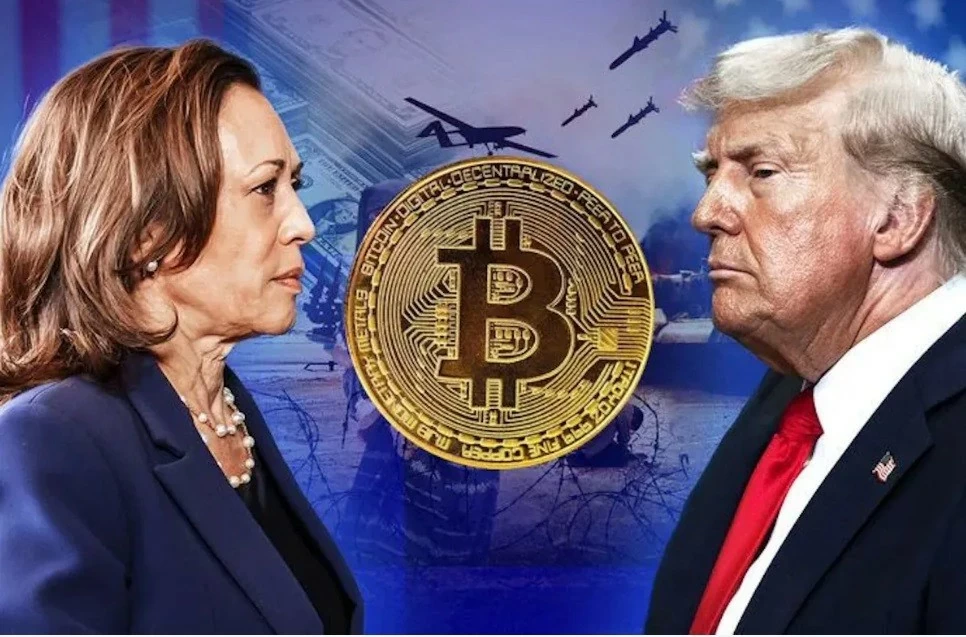 |
| The issue of cryptocurrency is expected to play an increasingly important role in the election race between two candidates - Mr. Donald Trump and Ms. Kamala Harris this November. (Source: X Screengrab) |
The Democratic Party's stance is changing
Traditionally, the stance of the Joe Biden administration and prominent Democrats, including Senator Elizabeth Warren, has been cautious about cryptocurrencies and focused on risks related to consumer protection, financial stability, and money laundering.
Gary Gensler, Chairman of the US Securities and Exchange Commission, has played a key role in this stance, advocating that many crypto assets be treated as securities, subject to the same strict regulations that govern stocks and bonds.
However, in recent times, the growing role and influence of cryptocurrencies has led to a significant change in stance within the Democratic Party.
In May 2024, the passage of the Financial Innovation and Technology for the 21st Century (FIT21) Act – with significant Democratic support – demonstrated the growing recognition of the importance of digital assets in the US political establishment.
Despite the Biden administration’s initial opposition to FIT21, Democrats are ready to work with regulators to develop a balanced regulatory framework for cryptocurrencies.
In fact, views on cryptocurrencies within the Democratic Party are significantly divided. While Senators like Warren continue to emphasize the dangers of digital assets, many others in the party are pushing Vice President Kamala Harris to recognize the potential of digital assets and engage with the industry in a more constructive way.
The internal debate within the Democratic Party also reflects the tension between innovation and regulation. As cryptocurrencies grow in popularity, the challenge for the party is to balance these competing interests while still protecting consumers and the financial system.
Democratic presidential candidate Kamala Harris has yet to take a firm stance on cryptocurrencies. But her campaign has teamed up with influential industry figures amid pressure from pro-crypto party members to take a more pro-crypto approach to the race.
According to Politico, American billionaire Mark Cuban has received “many questions” about cryptocurrencies from Ms. Harris’s campaign, which he sees as a positive sign. Mr. Cuban said the feedback suggests Ms. Harris may be more open to digital business, artificial intelligence (AI), cryptocurrencies, etc. However, Ms. Harris herself has not confirmed this.
Harris’s stance on cryptocurrency regulation could determine whether wealthy industry leaders contribute to her campaign and could help mobilize younger, tech-savvy voters — who are increasingly engaging with digital assets.
The formation of Crypto4Harris, a group focused on cryptocurrency issues aimed at boosting Harris’ appeal and helping her gain an edge over Republican nominee Donald Trump, underscores the importance of the topic in the upcoming presidential race.
The group’s efforts, which include a series of events, aim to counter Mr. Trump’s influence on cryptocurrencies and strengthen the relationship between Ms. Harris and the digital asset ownership community.
Democratic vice presidential candidate and running mate of Kamala Harris, Tim Walz, has yet to make a public statement on crypto, although his past interactions with the industry, including returning donations from executives of popular crypto exchange FTX, suggest he takes a cautious approach.
A pivotal moment for the future of cryptocurrencies
From a vocal critic of cryptocurrencies, Donald Trump's change of stance on the currency comes at a time when he is seeking to attract campaign contributions from wealthy industry leaders who have invested heavily in the cryptocurrency space.
Mr. Trump is trying to position himself to gain financial support from the digital asset community.
It's worth noting, however, that the Republican nominee is also facing ongoing legal challenges and his poll numbers are trending downward, raising questions about the sustainability of the strategy.
Still, many say his focus on cryptocurrencies could appeal to younger voters who are getting into digital assets.
It can be said that the upcoming Presidential election in November 2024 will be a pivotal moment for the future of cryptocurrencies in the US.
While former US President Donald Trump has officially embraced digital assets and brought the issue to the forefront, there are still broader political dynamics at play.
Incumbent President Joe Biden, Democratic nominee Kamala Harris and other key party figures are grappling with how to approach the rapidly growing industry.
As the lines between technology and politics continue to blur, decisions made in the coming months are likely to have far-reaching implications for the future of digital assets and their role in the global economy .
Source: https://baoquocte.vn/bau-cu-my-2024-khong-phai-toi-pham-hay-nhap-cu-day-moi-la-van-de-se-dot-nong-cuoc-dua-giua-ong-trump-va-ba-harris-283826.html







![[Photo] Prime Minister Pham Minh Chinh inspects the progress of the National Exhibition and Fair Center project](https://vphoto.vietnam.vn/thumb/1200x675/vietnam/resource/IMAGE/2025/5/19/35189ac8807140d897ad2b7d2583fbae)





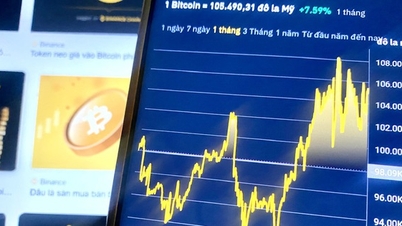

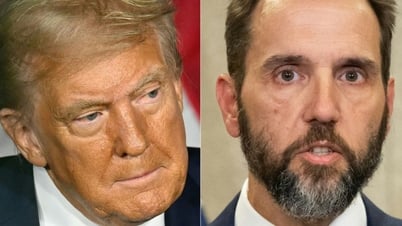
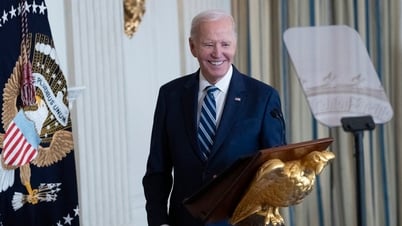


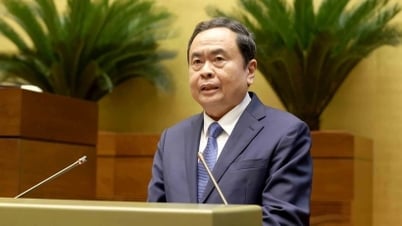
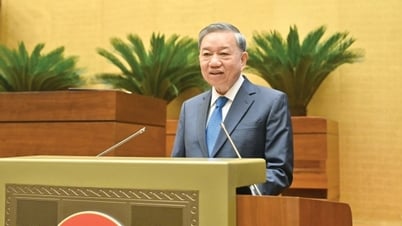





































































![[VIDEO] - Enhancing the value of Quang Nam OCOP products through trade connections](https://vphoto.vietnam.vn/thumb/402x226/vietnam/resource/IMAGE/2025/5/17/5be5b5fff1f14914986fad159097a677)







Comment (0)